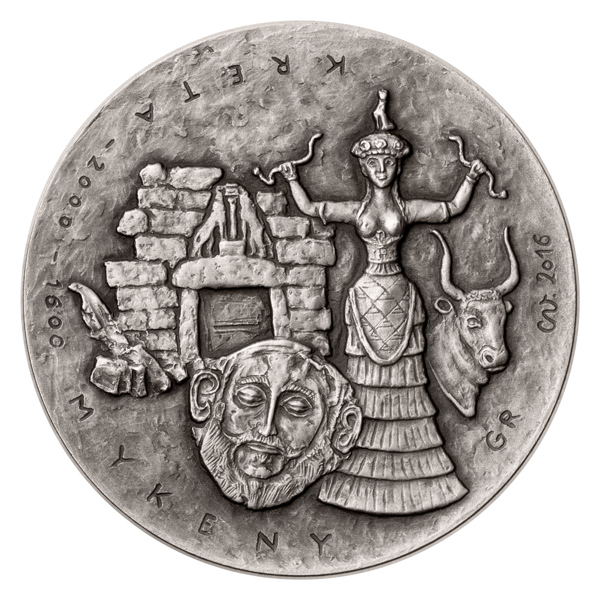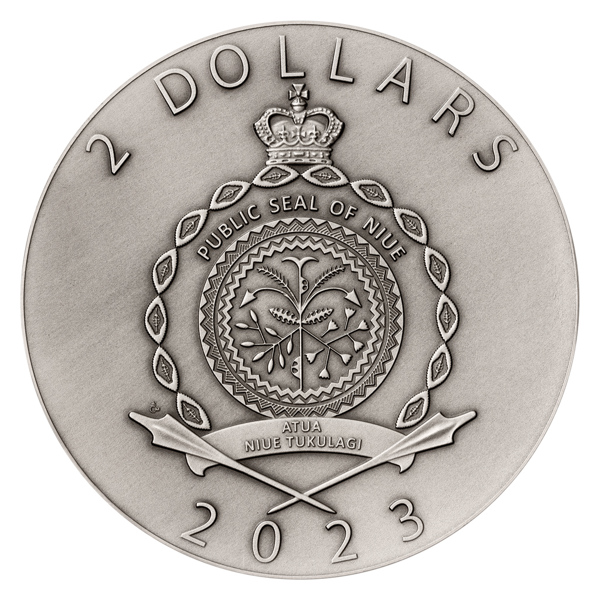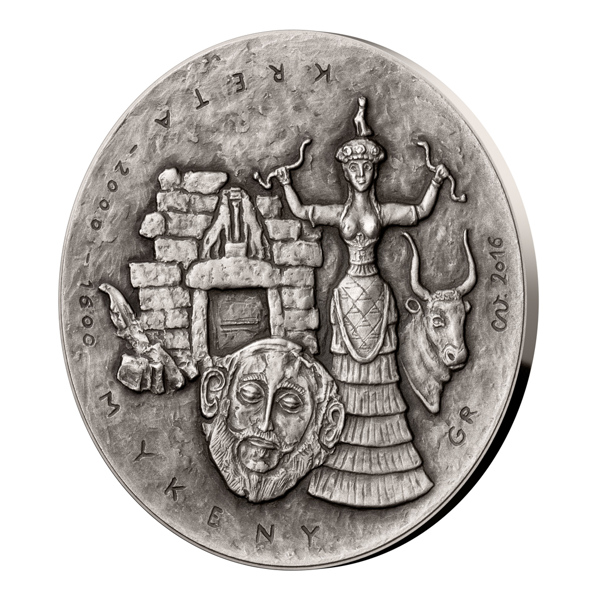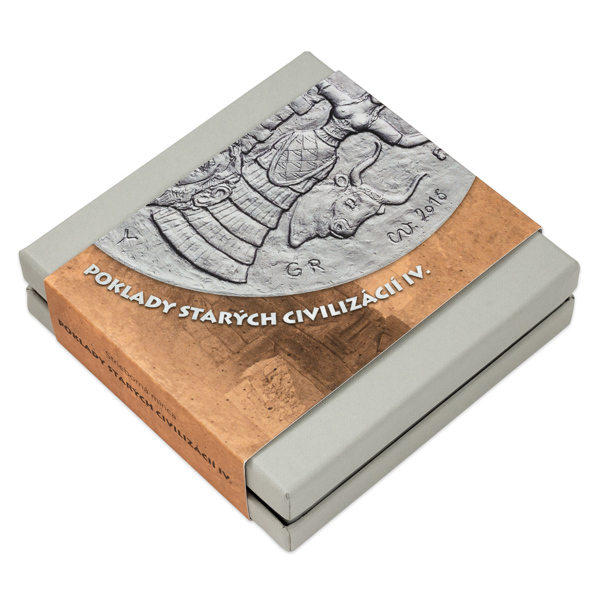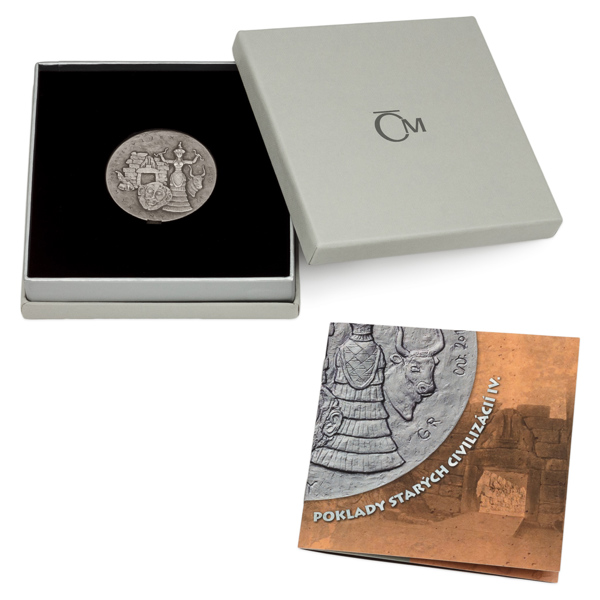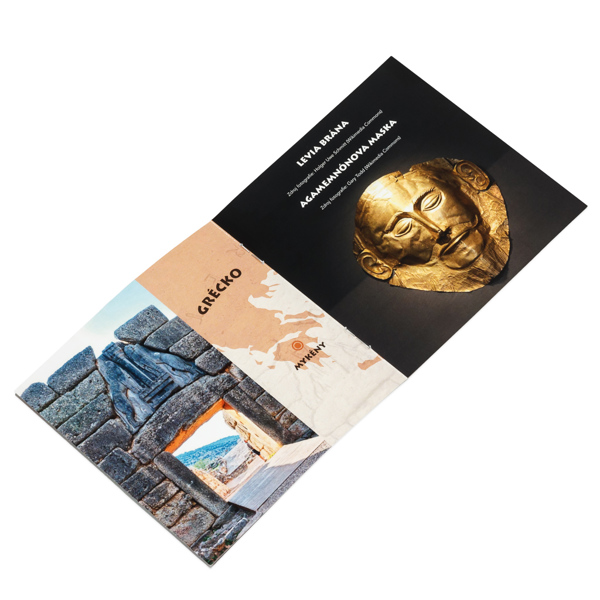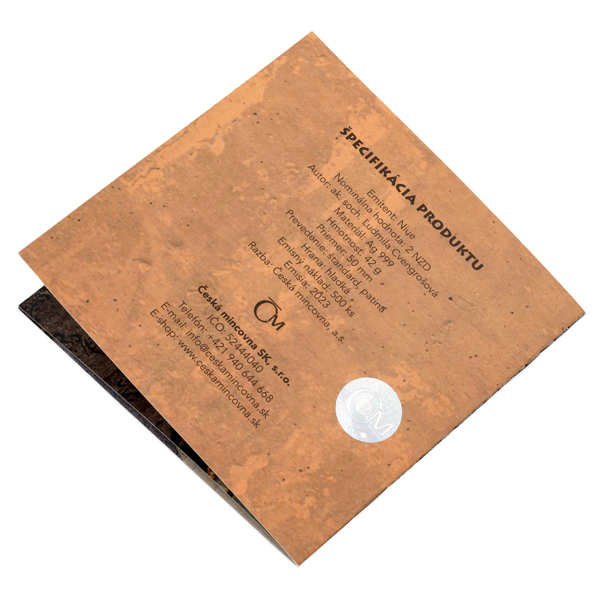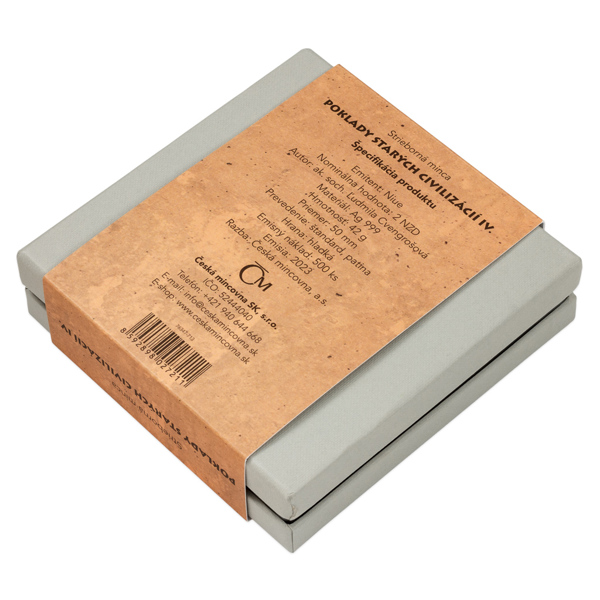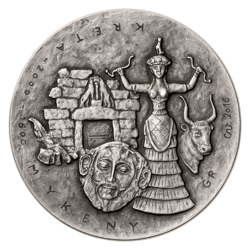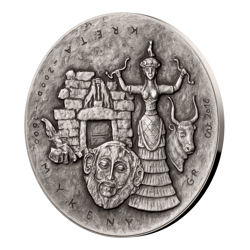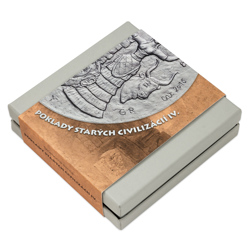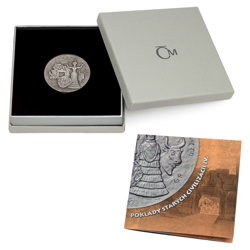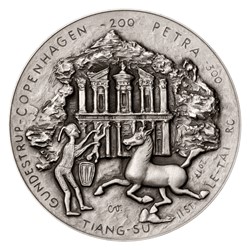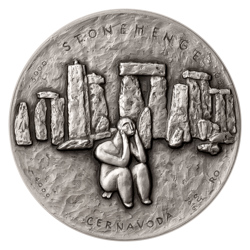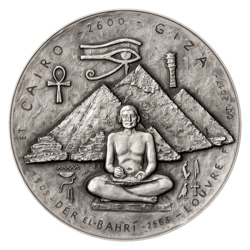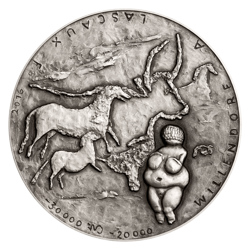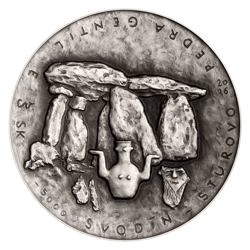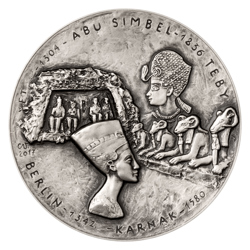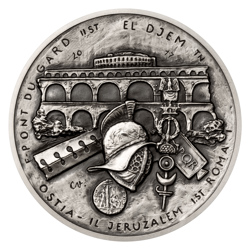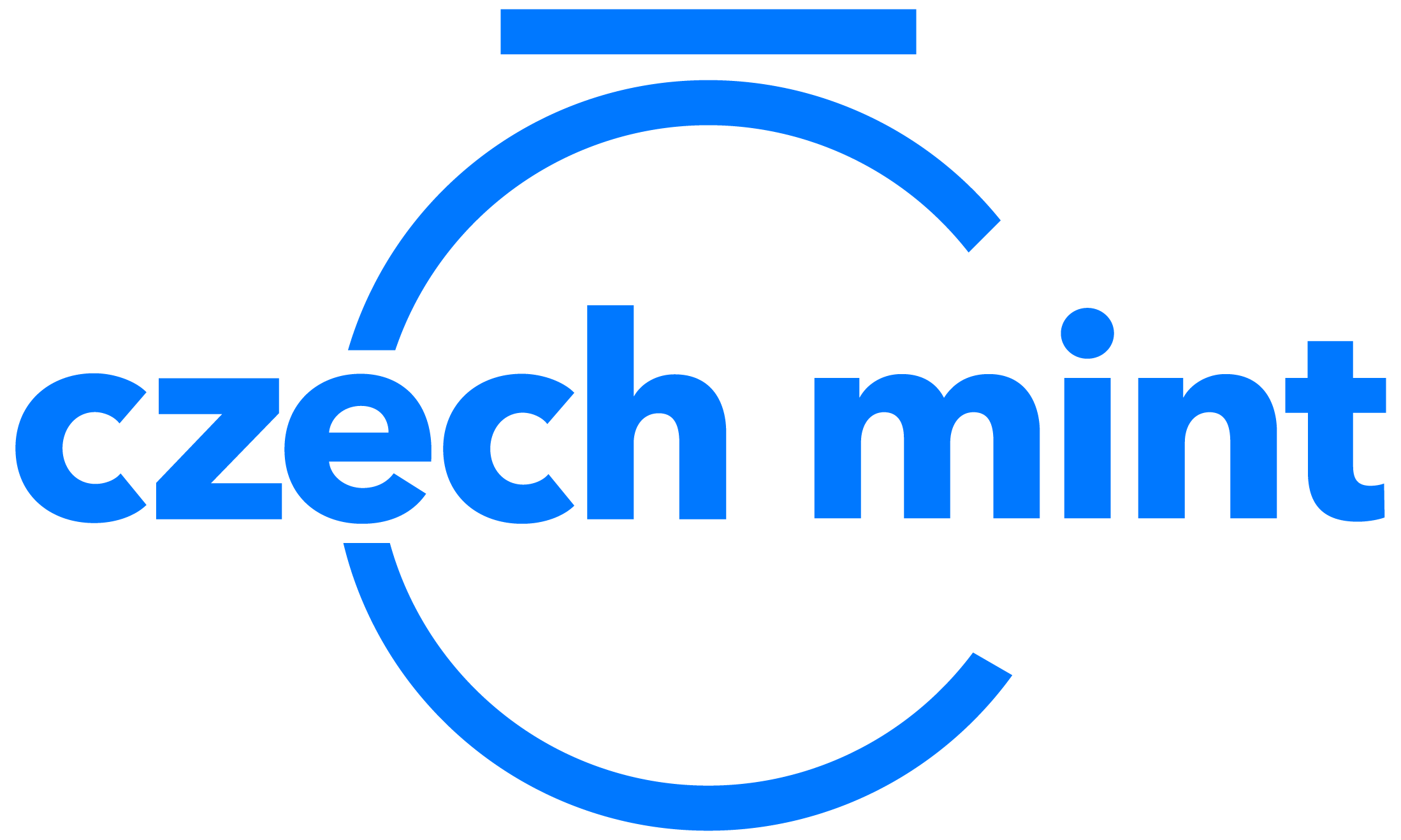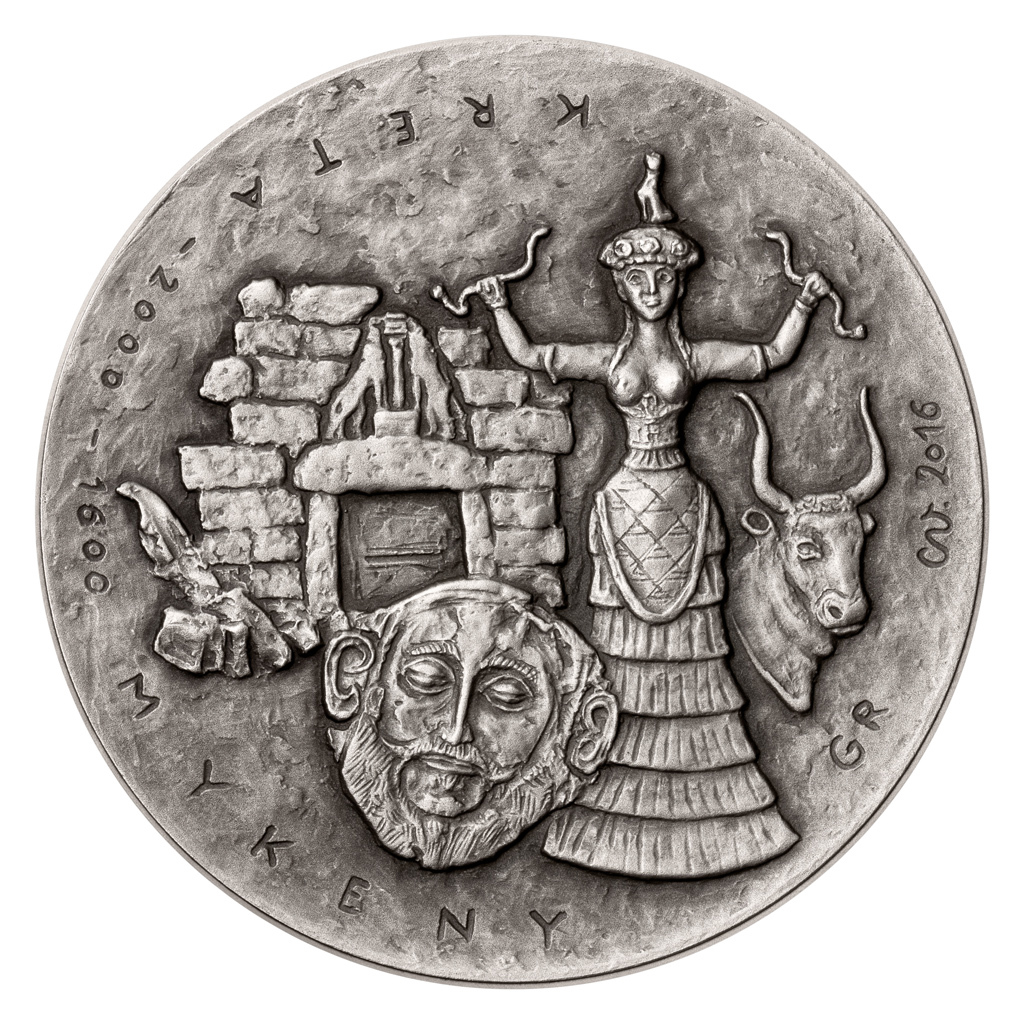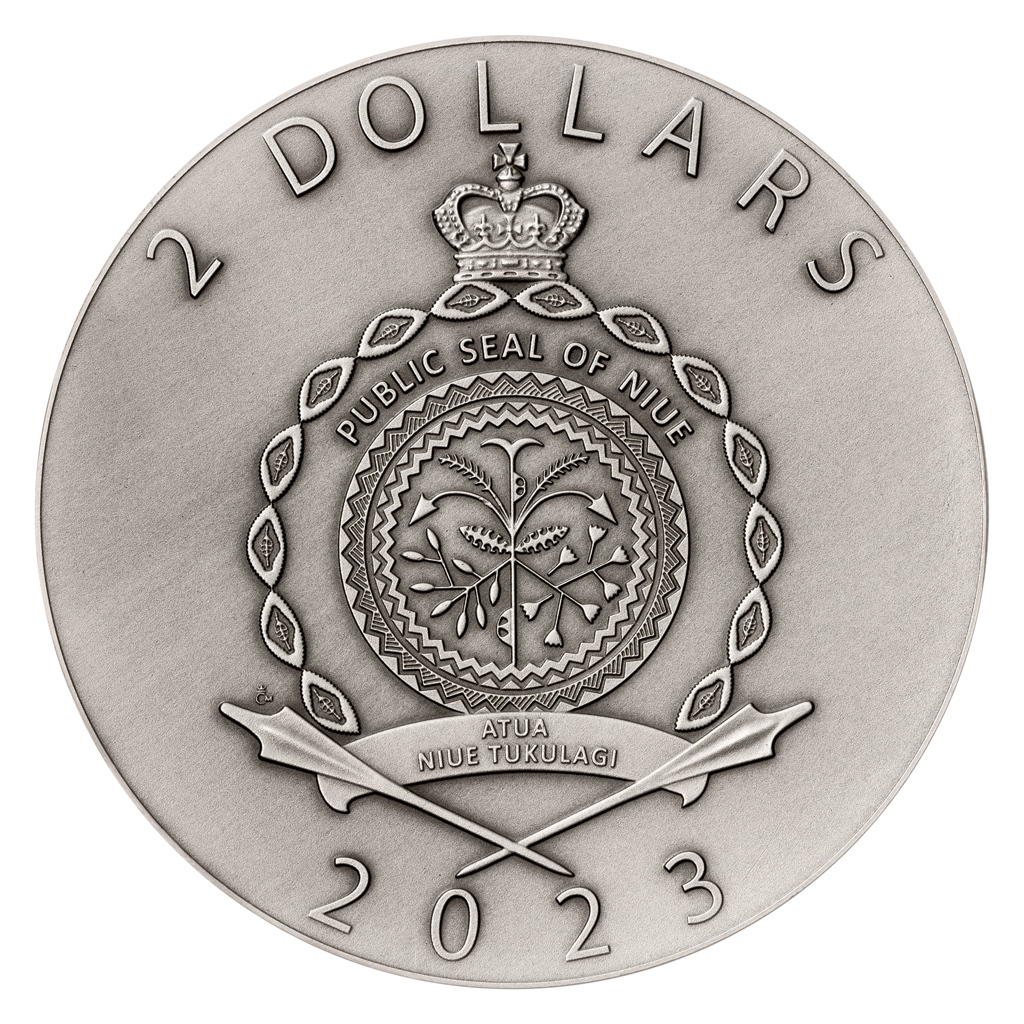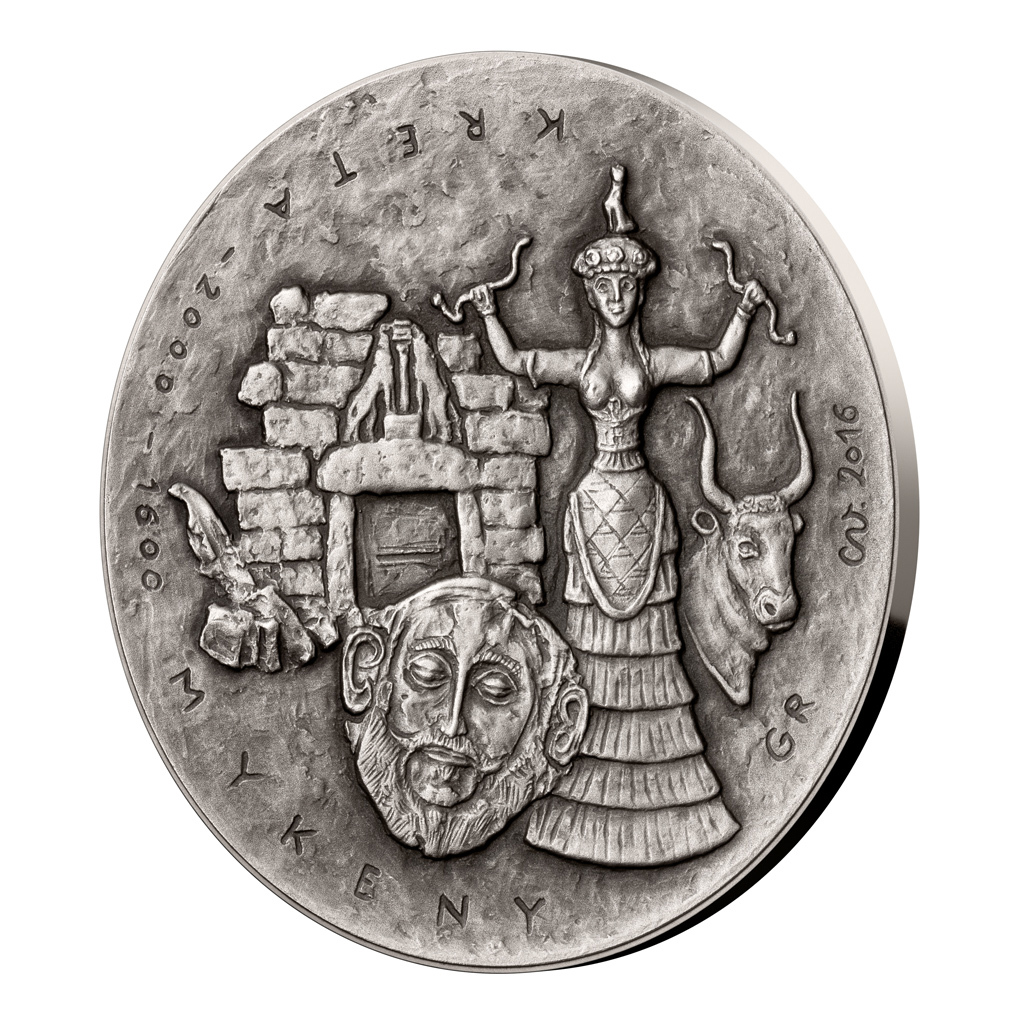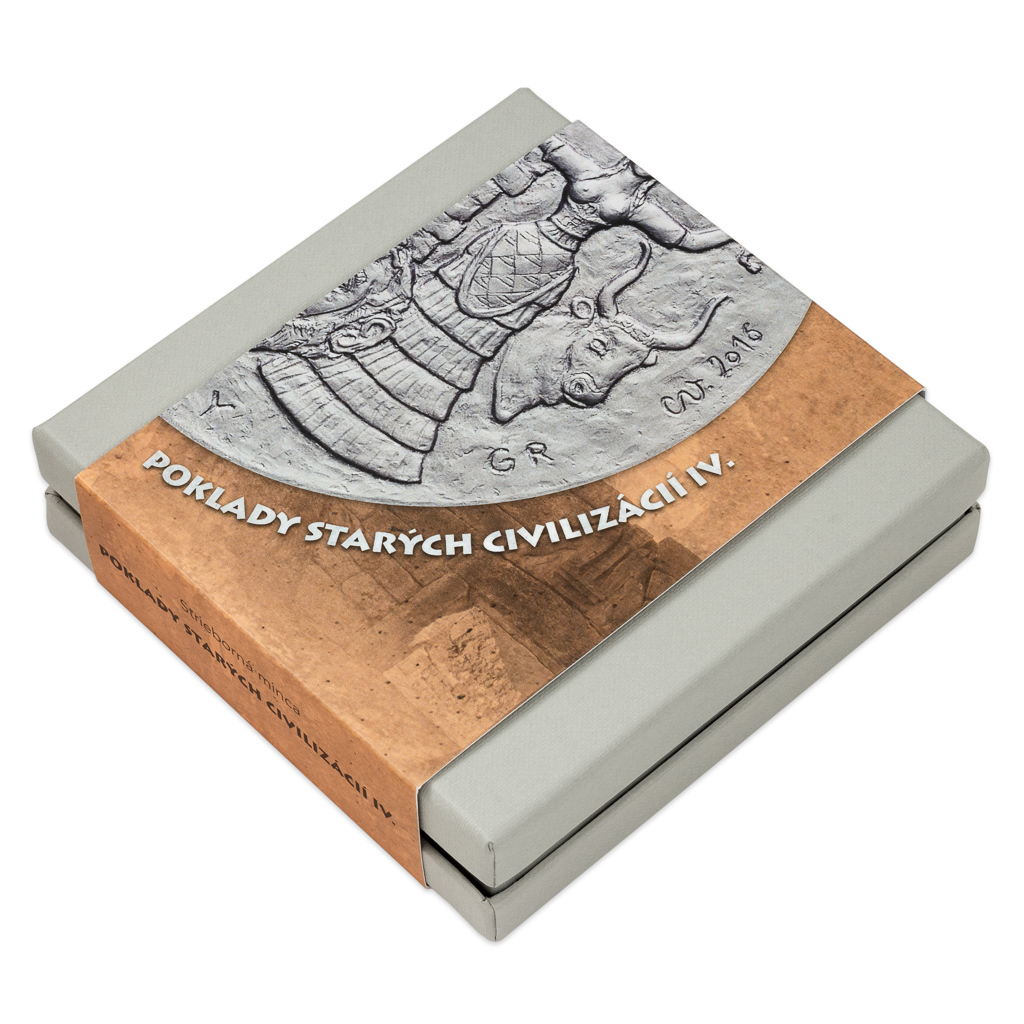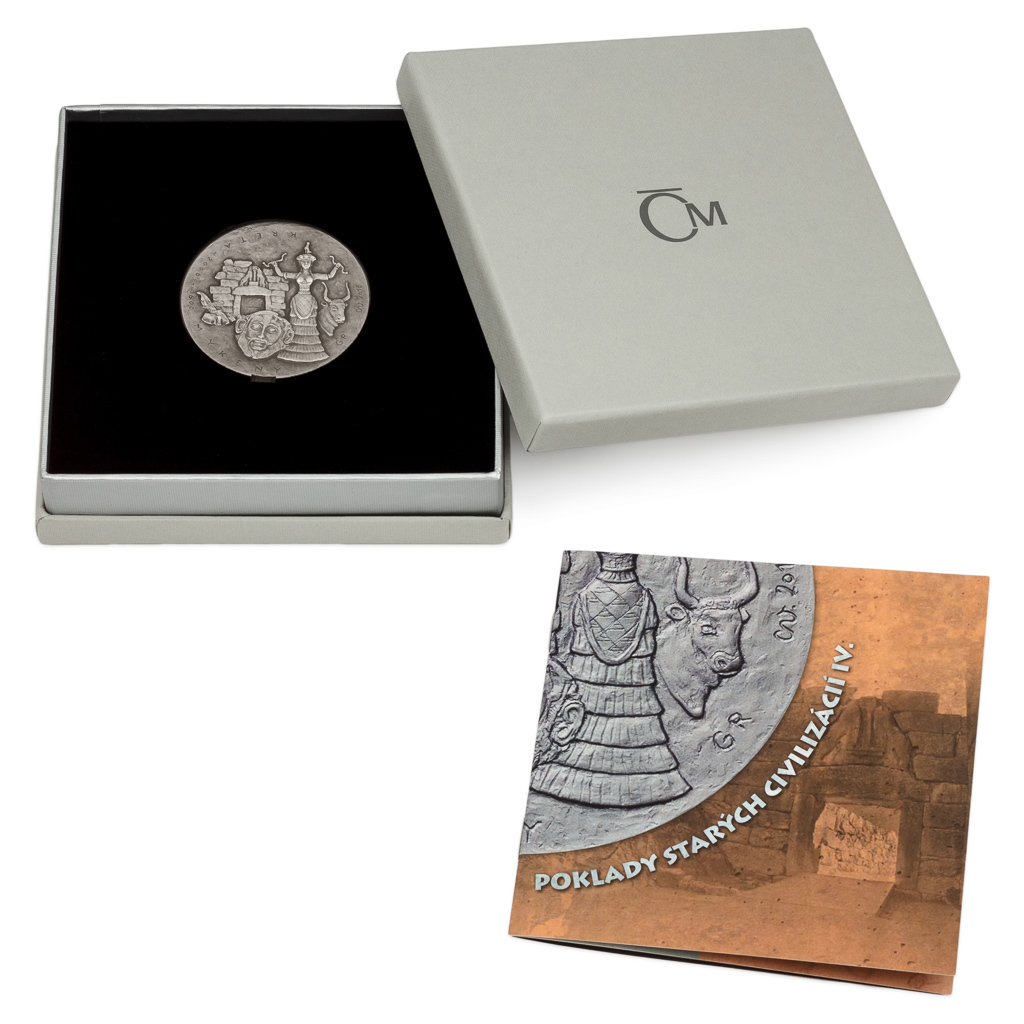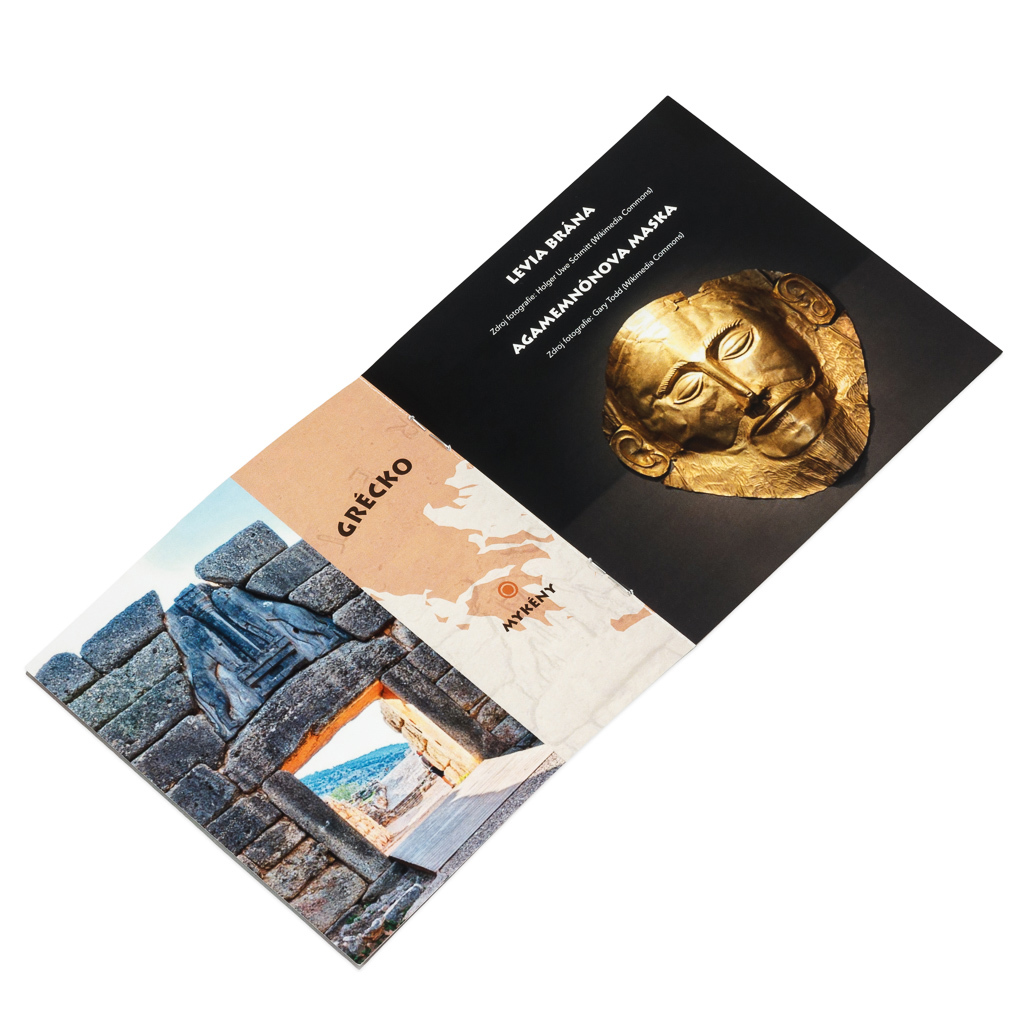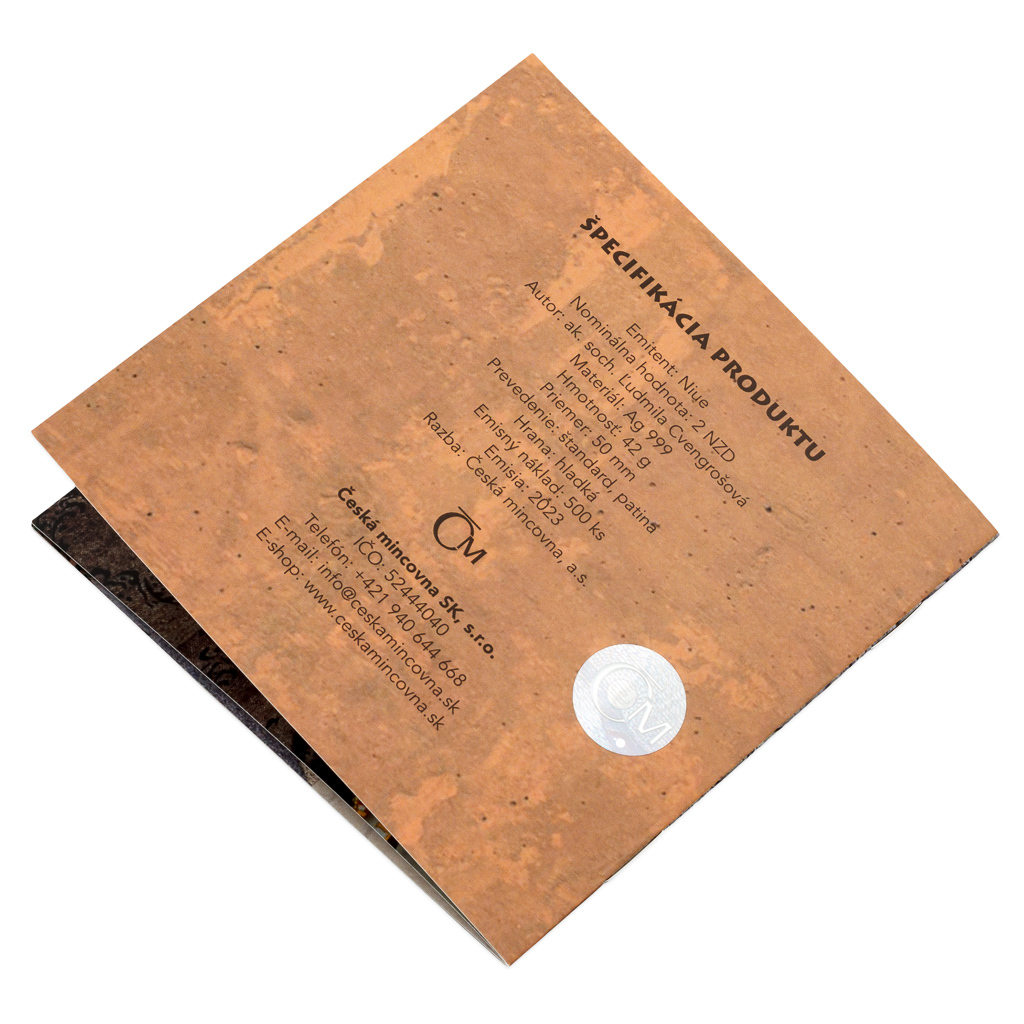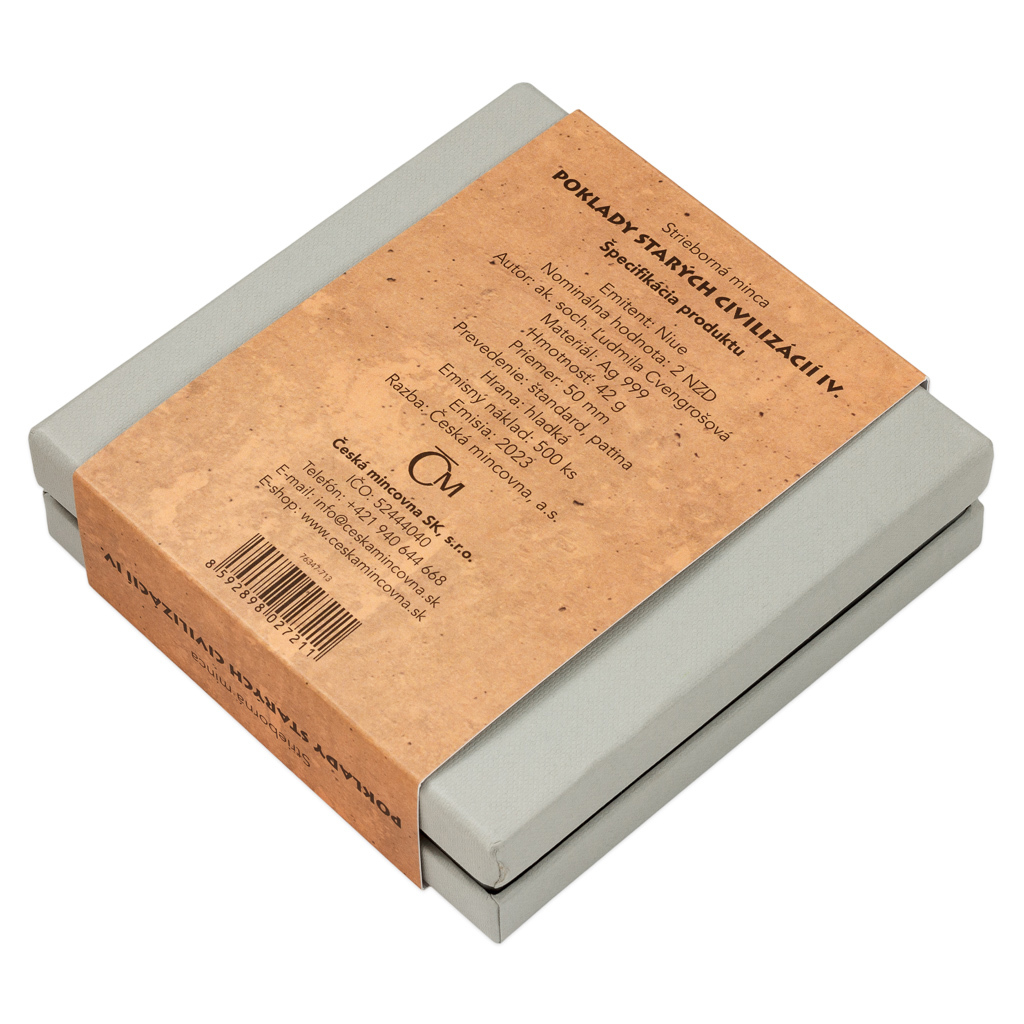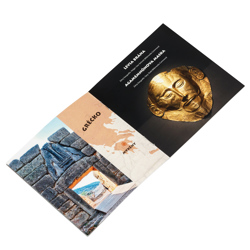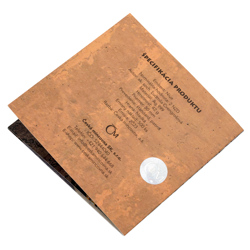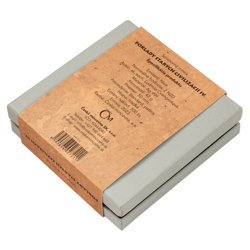Silver coin Treasures of ancient civilizations IV. SK stand
Personal pickup at the store
Treasures of ancient civilizations
The relief of the fourth silver coin in the series representing the Treasures of Ancient Civilizations features relics of two Mediterranean cultures - Minoan and Mycenaean.
- The Minoans from the island of Crete built the oldest known European civilisation, which significantly influenced the culture of Greece and, with it, the culture of the whole of Europe. Their sacred animal, which personified strength and fertility, was the bull. This is evidenced not only by the legend of the Minotaur, but also by a wealth of artifacts dating back more than three and a half thousand years. Bull sculptures made of clay and gold or paintings of daredevils jumping over a bull have survived to this day. The rhyton, or ornate bull's head wine vessel, which was used for ritual libation, is also a rare artefact. This masterful example of Minoan stone carving was made from a single piece of black soapstone, with the eyes finished with crystal and jasper. A number of Minoan monuments were published by a palace complex in the Cretan capital of Knossos. It was here that a mysterious ceramic statue of a woman holding a snake in each hand was found. As the snake was a symbol of the underworld, it is possible that she was a goddess or priestess associated with the afterlife.
- The Minoan culture died out after 1450 BC, when the Achaeans from the Greek mainland invaded Crete, bringing with them the culture of the Mycenaean civilisation. Mycenae was a magnificent city with a massive fortification, which is said to have been the work of giant Cyclops. The main entrance to the fortress was the Lion's Gate, a portal built around 1250 BC and dominated by a triangular shield with a relief depiction of two lionesses. Inside the city walls, a tomb was found and within it was a breathtaking golden mask that covered the face of a noble man. The renowned archaeologist Heinrich Schliemann believed it was Agamemnon, who was a warlord in the Trojan War. However, it eventually turned out that the funerary mask was fashioned from a single piece of gold plate as early as around 1600 BC.
The reverse side of the commemorative coin by the academic sculptor Ľudmila Cvengrošová presents detailed depictions of four ancient monuments - the bull rhyton, the statue of the serpent goddess, the Lion's Gate and the mask of Agamemnon. As the licence to issue commemorative coins of the Czech Mint is granted by the Pacific island of Niue, the obverse side bears its necessary elements - the national emblem, the nominal value of 1 DOLLAR (NZD) and the year of issue 2023.
Our products are usually stored in protective capsules, but in this case we have made an exception. Since the coins from the Treasures of Ancient Civilizations series stand out with their high relief, we want to give you the opportunity to touch it! In addition to the patina, the silver embossing is also covered with a special protective film to protect its shine...
 čeština
čeština
 slovenčina
slovenčina
 english
english
